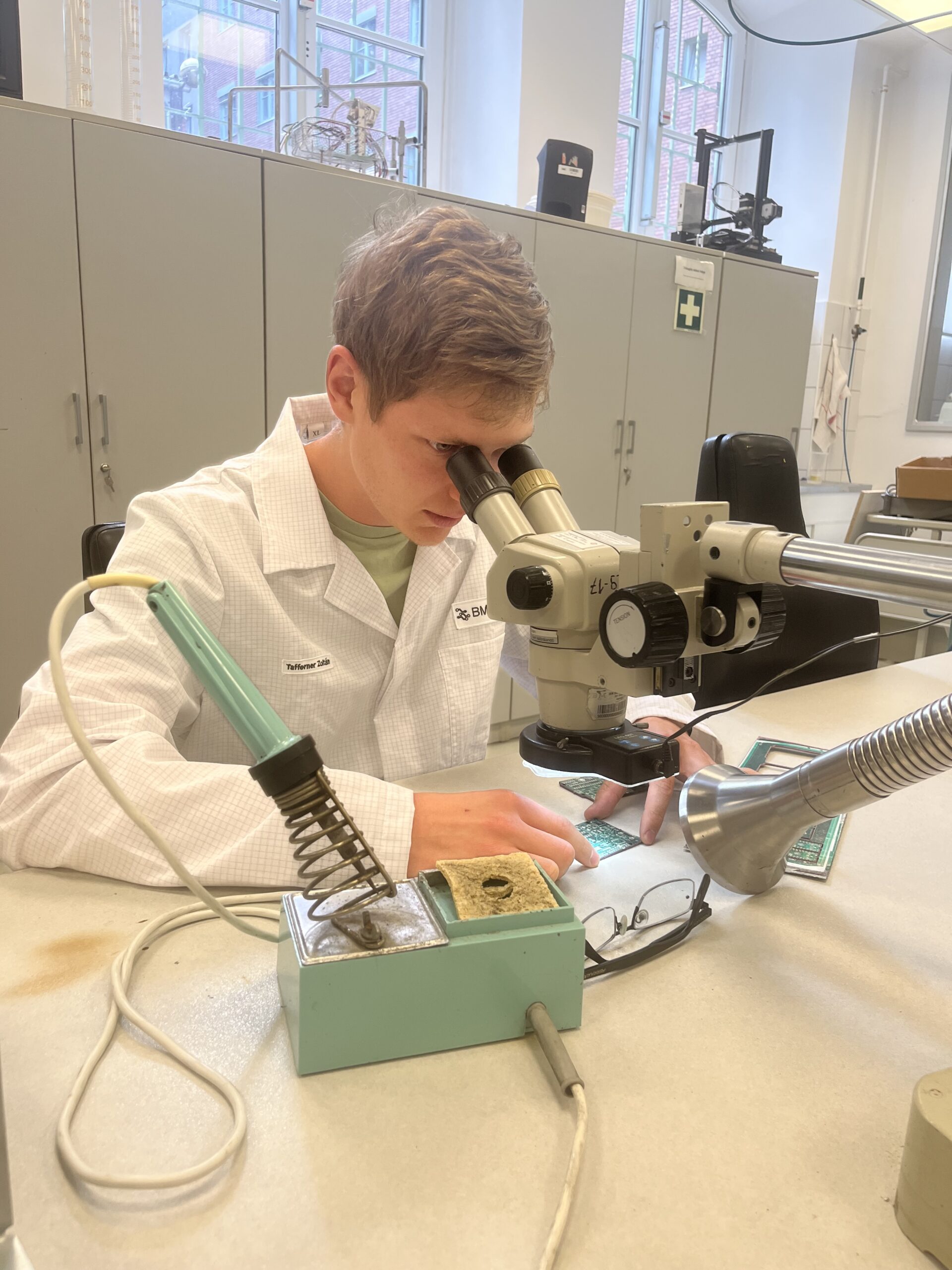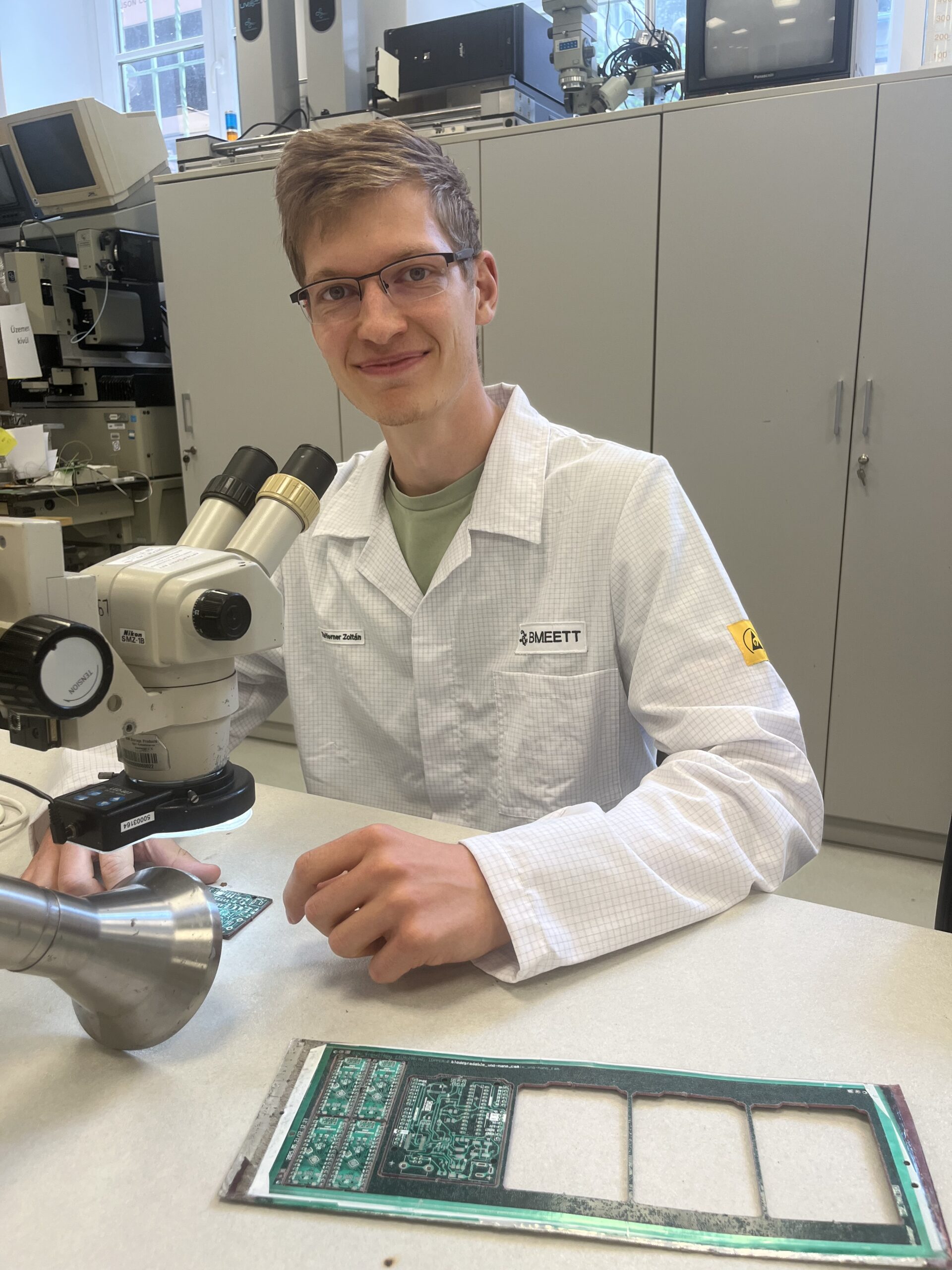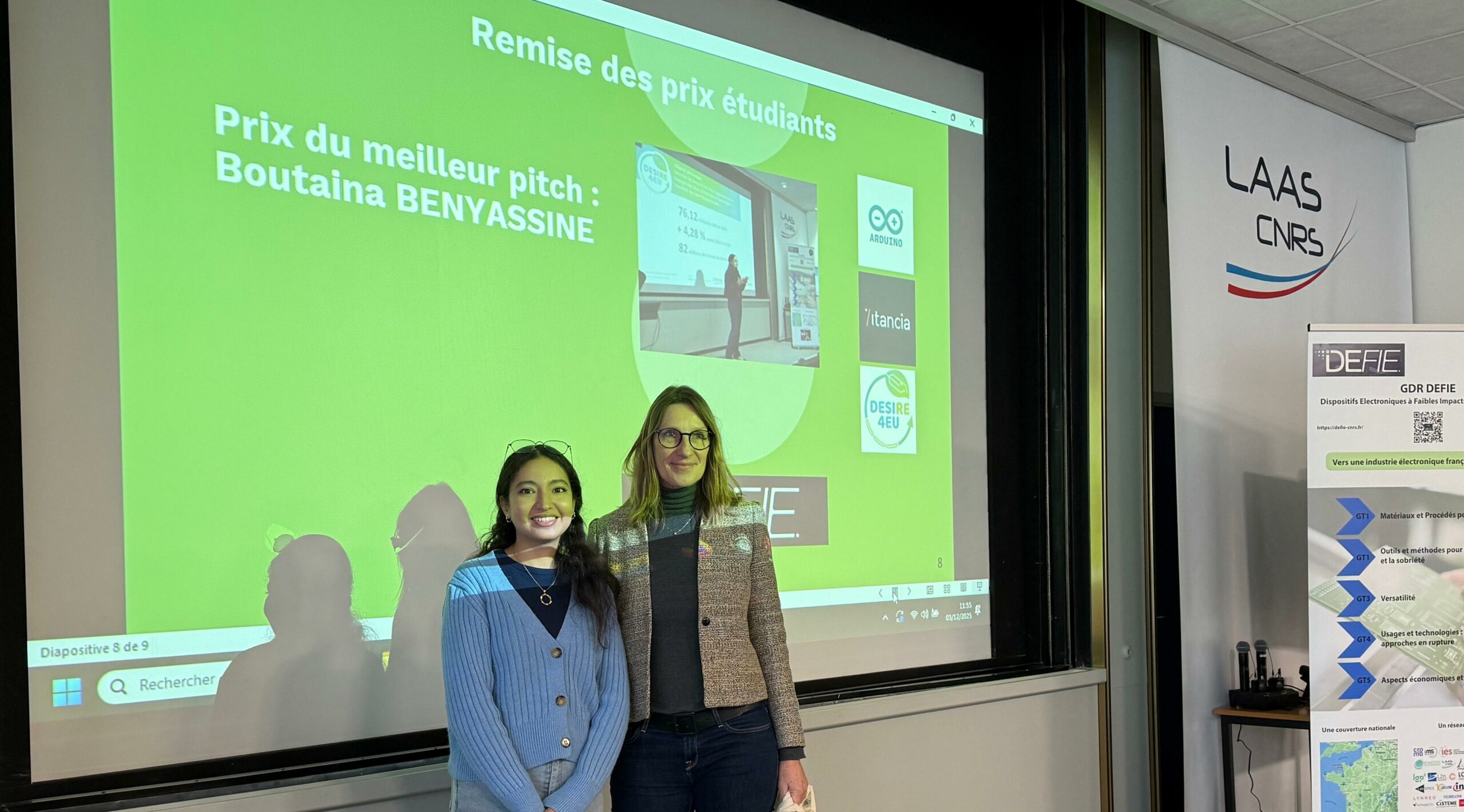Zoltan Tafferner’s Research Impact on Sustainable Technologies
Zoltan Tafferner’s Research Impact on Sustainable Technologies
As part of the DESIRE4EU project, we had the opportunity to interview Zoltan Tafferner, a PhD student at Budapest University of Technology and Economics whose work focuses on improving the sustainability of electronic components. His expertise in electrical engineering and his research on low-temperature solders and conformal coatings play a crucial role in developing more environmentally friendly solutions for the electronics industry. This interview explores his background, his contributions to the DESIRE4EU project, and his vision for the future of sustainable electronics.
Zoltan working in his research laboratory at Budapest University of Technology and Economics
Academic and Professional Background
Before starting his PhD, Zoltan obtained a bachelor’s and a master’s degree in electrical engineering from the Budapest University of Technology and Economics. His bachelor’s work focused on the finite element modeling of VO2 nanostructures, exploring the electrothermal conditions required for the metal-insulator phase transition. During his master’s, he worked at Bosch first as a trainee and later as a hardware engineer, specializing in PCB design and SiC MOSFET characterization. He also conducted research on the applicability of generative AIs in electrical engineering and electromigration in solder joints, publishing several papers on these topics. Currently, he pursues his PhD at the Budapest University of Technology and Economics under the supervision of Dr. Attila Géczy.
Research Focus within the DESIRE4EU Project
Within the DESIRE4EU project, Zoltan primarily focuses on low-temperature solders and their electromigration behavior. He also explores conformal coatings. The project uses PLA/Flax substrates, which, although biodegradable, are less robust than traditional materials like FR-4. Conventional solders require high temperatures (around 240 °C) that degrade the PLA substrate. This is why Zoltan works on low-temperature solders, such as Sn-Bi, which have a much lower melting point, allowing a reflow temperature reduced to 160-190 °C. These Sn-Bi solders, although more brittle, are essential for reducing the thermal load on PCBs. His current research focuses on the reliability and material properties of these solders, particularly the phase segregation of Sn and Bi, which could affect reliability. In parallel, he studies the application and measurement of the insulation resistance of biodegradable conformal coatings, in collaboration with the company AB Chimie, to improve the protection of PCBs against the environment, which is particularly important for biodegradable PCBs that are more sensitive to humidity.
“With my research, I seek to improve the technological maturity, before such a transition could happen in electronics.”
Impact of Research on Energy and Sustainable Transition
Zoltan believes that it is crucial to have energy and sustainable technology available in our societies. His research aims to improve technological maturity before a major transition occurs in electronics. He hopes that his contribution will help reduce the pressure on industry and society from regulations requiring the use of sustainable technologies. By improving the reliability of solder joints and PCB assemblies in general, it would be possible to create sustainably manufactured, long-term usable products that consumers could rely on for a decade.
Interdisciplinary Aspect of the Project
Zoltan appreciates the interdisciplinary aspect of the DESIRE4EU project, which allows him to explore multiple fields of study simultaneously. Currently, he conducts research on two distinct topics: low-temperature solders and conformal coatings. Both themes are at the intersection of electronics and chemistry, a field he finds fascinating. He wishes to delve deeper into topics at the interface of these disciplines and considers the project an excellent opportunity for this. This interdisciplinary approach not only enriches his research but also opens new perspectives for sustainable innovations in electronics.
Professional Prospects After PhD
After graduation, Zoltan wishes to pursue an academic career at his university, if the opportunity arises. He considers the DESIRE4EU project an excellent opportunity to realize this aspiration. His goal is to contribute to the advancement of research and education in the field of sustainable electronics, building on the knowledge and experience gained during his PhD.






